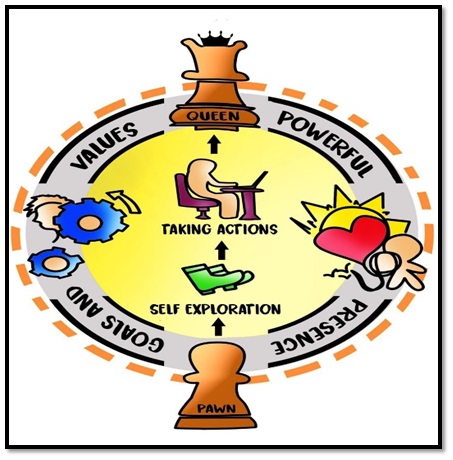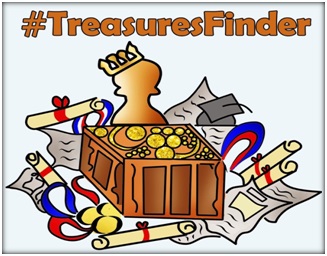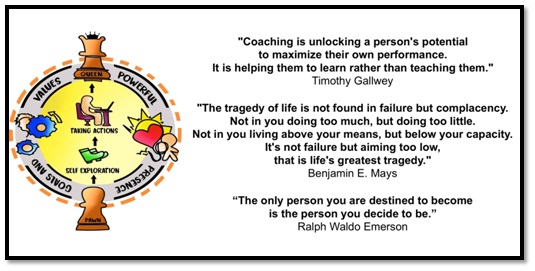A Coaching Model Created by Maria Shiela Cancino
(Transformational Coach, SINGAPORE)

This model describes the process of your transformation symbolized by a Chess Pawn into a Queen.
In Chess context, a pawn is just an ordinary soldier who is the first line of defense to protect the King. Unlike the other Chess pieces, it does not have any unique ability, and it can only move one or up to two steps forward around its territory and only one step beyond. The most powerful piece in the Chess game is the queen. It can attack anywhere, and it does not have any limitations in movement. Surprisingly, of all the chess pieces, only a pawn can become a queen when it reaches the base of the opponent; this is called promotion in Chess. [1]
The focus of this coaching model is to assist you in transforming you through various stages from (1) Pawn into (2) Self-exploration, then (3) Taking Actions, which eventually lead you into becoming a (4) Queen.
I will help you throughout these stages. I hold the ICF Competencies and strictly follow the ICF Code of Ethics.
Stage 1 – Pawn
Your current situation. You have noticed that something needs to be changed. Perhaps you are not moving up to the ladder. Probably your relationships with others need improvement. Maybe you have potentials, but you are not utilizing them.
Stage 2 – Self-exploration
The primary purpose of this stage is your self-awareness. During the sessions, you will be able to explore all possible contributors that might be the causes of your untapped potentials and hindrance in attaining your goals. Some examples, not limited to, are:
Limiting Beliefs:
As we grow, we were taught and shown, with certain norms or beliefs that affected how we picture ourselves out living in this world. As we believe in these, we are also boxing ourselves in, to the point of limiting what else we can become.
“We are poor; you won’t be able to finish your studies.”
“You have a deep voice; you cannot be a singer.”
“You are short; you cannot be a Basketball player.”
“Chess is only for smart people.”
Building Confidence:
As the sessions continue, after identifying what your limiting beliefs are, you would realize that you have lots of untapped potentials. This realization would help you to progress into becoming confident. As you explore more, values and perspective in life will eventually change that can help you reach inner willingness to become better and to achieve more. The more you understand yourself, the more you become confident to pursue and attain your goals in life.
Understanding Life’s Goals:
Part of the Self-Exploration stage is that you will understand the core of your goals in life. You would explore your purpose in wanting to become better and in wanting to achieve more. You would then think about your Motivations, Inspirations, and Passions. Along the way, there might be some blockages and hindrances that you may encounter as you pursue to become better and to achieve more. Thus, strong foundations are necessary for you to retain the determination to keep going. Some examples of motivations, inspirations, and passions being long-time proven core foundations, but not limited to are our family, loved ones, dreams, etc.
Stage 3 – Taking Actions
After the self-exploration stage, you would become aware of your inner-self and would be able to identify your limiting beliefs, untapped potentials, and purpose in life. Now that you are knowledgeable of these, you would be determined to take action and will be accountable, committed, and steadfast.
Stage 4 – Queen
You have successfully transformed into a Queen. As a Queen, you have achieved your goal and found life’s treasures like, not limited to:
There is still a lot more the world has to offer for a Queen. Like the Queen in Chess Pawn, you will now be able to move or pursue whatever you want in life, as you have now reached your full potentials in achieving more and become better.
For all these stages to be successful, I, your Coach, am required to have the necessary tools to help you throughout the coaching sessions.
The ICF Competencies[2]
Setting the Foundation

The ICF Standards of Ethical Conduct [3]

[1]https://en.wikipedia.org/wiki/Chess
[2]https://coachfederation.org/core-competencies
[3]https://coachfederation.org/code-of-ethics-overview